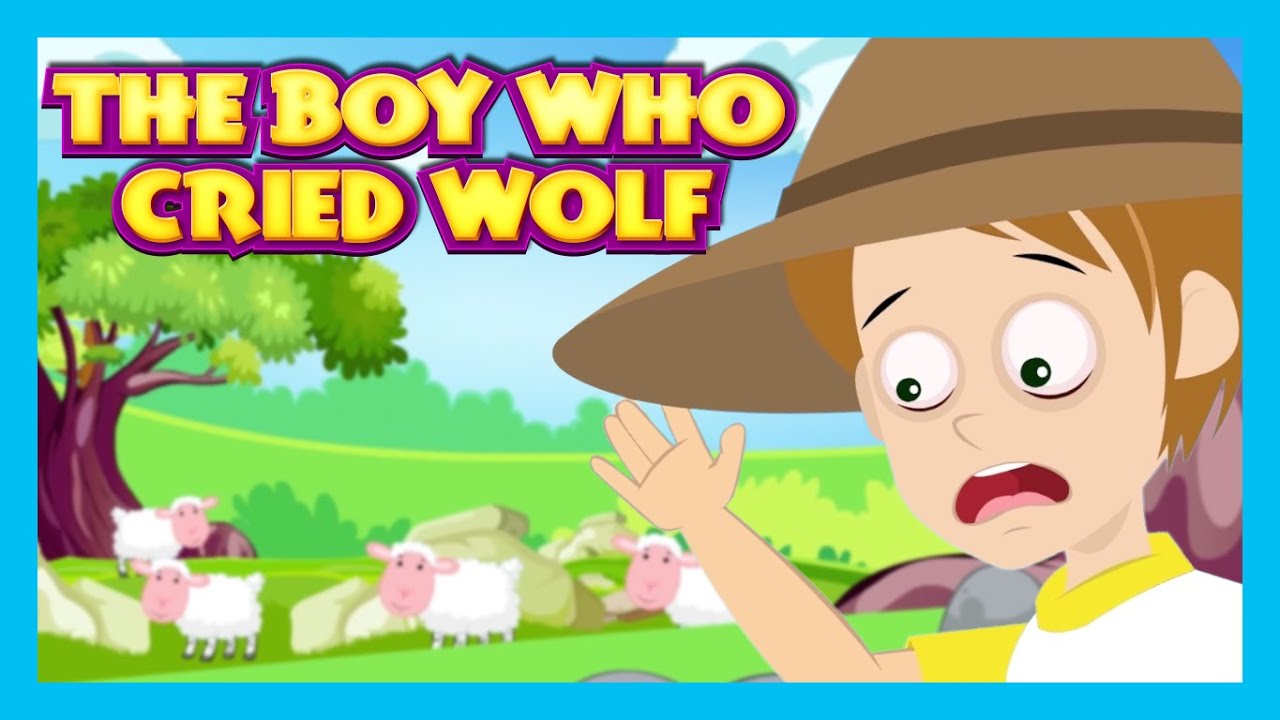Here is a summary Of Story:
A shepherd boy who is bored and wants to have some fun shouts “Wolf! Wolf! Help me! Help me!” There is no wolf, but the farmers working in the fields hear the boy’s cry and run up the hill to help him. The boy laughs at them and says there is no wolf. The farmers warn him for playing such tricks and walk away.
The next day, the boy shouts “Wolf! Wolf! Please help me this time!” The farmers grow angry and say that if he ever does this again, they will not come to help him. The boy understands and promises not to lie again.
The next day, a wolf really does attack the sheep. The boy shouts “Wolf! Wolf! Help me!” but the farmers do not believe him. They think he is playing another trick. The wolf eats many of the sheep.
The boy learns his lesson. He never lies again.
Story Begin – The Boy Who Cried Wolf Story
In the heart of a tranquil village nestled amidst rolling hills, there lived a young shepherd boy named Timmy. Timmy was tasked with tending to a flock of sheep grazing peacefully on the verdant meadows. As the days turned into weeks, Timmy’s youthful spirit began to flag, and boredom crept into his routine.
To alleviate his tedium, Timmy devised a mischievous plan. He decided to trick the villagers into believing that a wolf was attacking his sheep. With a mischievous glint in his eye, Timmy let out a piercing cry, “Wolf! Wolf! The wolf is after my sheep!”
The villagers, ever vigilant and protective of their fellow villagers, heeded Timmy’s urgent call. Flocks of concerned individuals descended upon the pasture, their hearts pounding with worry. But as they reached the scene, they found no wolf, only Timmy doubled over in laughter, his prank having succeeded.
The villagers’ patience was wearing thin. They scolded Timmy for his thoughtless behavior, warning him that such irresponsible actions would have serious consequences. Timmy, chastened by their reprimand, promised to refrain from such pranks.
Despite his pledge, Timmy’s boredom returned, and he once again succumbed to the temptation of trickery. He let out another false alarm, “Wolf! Wolf! Save my sheep!” The villagers, still smarting from their previous experience, emerged from their homes with a tinge of disbelief.
As they approached the pasture, Timmy’s laughter echoed through the air, confirming their suspicions. They reprimanded Timmy sternly, warning him that his repeated lies would render them incapable of believing him when he truly needed their assistance. Timmy, humbled by their words, apologized profusely and promised never to fabricate such stories again.
However, fate had another lesson in store for Timmy. As the sun began to set, casting long shadows across the pasture, a real wolf emerged from the depths of the forest, its eyes gleaming with hunger. The wolf lunged towards the sheep, scattering them in all directions.
In a state of panic, Timmy let out a desperate cry, “Wolf! Wolf! Help! The wolf is attacking my sheep!” But his pleas were met with skepticism. The villagers, still harboring doubts from their previous encounters, dismissed his cries as another prank.
The wolf, having tasted the vulnerability of the scattered flock, proceeded to devour several sheep, leaving Timmy heartbroken and the villagers remorseful for their lack of faith. The boy’s mischievous actions had led to a grave consequence, a lesson in the importance of honesty and the consequences of deceit.
From that day forward, Timmy never uttered a false word, his heart forever etched with the memory of his folly. The villagers, wiser for their experience, vowed to extend their trust only to those who proved worthy of it. And so, the story of the boy who cried wolf served as a timeless reminder of the power of truth and the perils of deception.
In the aftermath of the wolf’s attack, Timmy’s heart ached with remorse. He realized the gravity of his actions and the dire consequences of his repeated lies. The sight of his scattered flock, some of them injured, filled him with a profound sense of guilt.
The villagers, too, were burdened with regret. They had learned a harsh lesson about the importance of trust and the fragility of their bond with Timmy. They had dismissed his pleas for help, believing them to be another prank, and their skepticism had allowed the wolf to feast on their beloved sheep.
The incident left a lasting mark on the village. Timmy was reprimanded by the village elders, and the villagers vowed to be more discerning in their actions. They resolved to approach each cry for help with sincerity and empathy, ensuring that no one would fall prey to the consequences of deceit.
Timmy, scarred by his experience, vowed to never again resort to falsehood. He recognized the value of honesty and the importance of being a reliable member of the community. He pledged to earn back the trust of the villagers and prove his worth as a shepherd.
Under the guidance of the village elders, Timmy underwent a transformation. He dedicated himself to his duties, ensuring the safety and well-being of the sheep. He learned to read the subtle signs of danger, recognizing the potential threats that lurked within the forest’s depths.
As time passed, Timmy’s dedication and honesty earned him back the respect of the villagers. They saw the remorse in his eyes and the sincerity in his actions. They realized that his reckless behavior had been born out of boredom and not malice.
The incident of the boy who cried wolf became a cautionary tale within the village, a reminder of the importance of truth and the consequences of deceit. It served as a testament to the power of integrity and the importance of maintaining trust within a community.
And so, Timmy, once a mischievous boy driven by boredom, emerged as a mature and responsible shepherd, his heart guided by honesty and his actions fueled by a deep sense of commitment to the well-being of his flock and the trust of his community.


